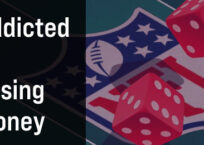
Illinois lawmakers are back in Springfield for round two of the Fall Veto Session, which is scheduled to run through November 10th.
This morning, the Illinois House Executive Committee voted to pass a new gambling bill by a vote of 8-2. Voting against this bill in committee were Representatives Eddie Lee Jackson (D-East St. Louis) and Mike Tryon (R-Cyrstal Lake)
The new bill, SB 1849, introduced by State Representative Lou Lang (D-Skokie), would bring five new casinos to Illinois. The proposed locations of these casinos are Chicago, Rockford, Danville, Park City and somewhere in the south suburbs of Chicago. The current 10 casinos would also expand their gambling capacities from 1,200 to 1,600 gambling positions, and video slot machines would be authorized at the six existing racetracks.
SB 1849 contains many of the provisions that were included in SB 744 — the bill Gov. Patrick Quinn said went too far. Slot machines at Chicago airports and the state fairgrounds are not included in this newest predatory gambling bill.
The Chicago Tribune reports that this legislation would more than double gambling in the state: “Lang’s gambling expansion would increase the number of gambling positions in Illinois from 12,000 to about 32,000.”
Take ACTION: Click HERE to send your state lawmakers an email or a fax to tell them “NO MORE GAMBLING — PERIOD.” Don’t delay in speaking out. With only 2 days left in the Veto Session, this gambling bill will move fast.
Background
In addition to the 10 casinos Illinois currently has, residents face the prospect of an additional 15 casinos, making Illinois a top contender for the most anti-family and predatory gambling state in the nation.
Supporters of the bill say this gambling expansion will bring in jobs, but at what cost to the citizens of Illinois? While we do need jobs, what else does gambling bring with it?
The National Gambling Impact Study Commission estimated that approximately 15 million U.S. citizens have a gambling problem and/or are pathological gambling addicts. Their research also shows that addiction rates double within 50 miles of a casino. Think of all the people within a 50-mile radius of 15 casinos and how many new gambling addicts the state will help produce with this foolish proposal. There is enormous potential for many new gambling addicts in Chicagoland alone. How is this good public policy?
The American Psychiatric Association says that symptoms of pathological gambling include the following: lying about the amount of time or money spent gambling, needing to borrow money to get by due to gambling losses, gambling larger amounts of money to try to win back previous losses, and committing crimes to obtain money to gamble.
Researchers believe that crimes committed by compulsive gamblers are often underreported. Some of these crimes include writing bad checks, check forgery, fraud, and embezzlement.
Some gamblers turn to street crime. The National Institute of Justice reported that 30 percent of pathological gamblers who were arrested in Las Vegas and Des Moines admitted that they had committed a robbery within the past year. About 13 percent of them admitted they had assaulted someone to get money.
Although some people win at the casinos, winning consistently is rare. And those people who believe they will win their money back after a losing streak are deluding themselves. The truth is one in five people addicted to gambling will file for bankruptcy. Casinos would not be able to stay in business if people won more than they lost.
Studies also show that both divorce and suicide rates are higher for pathological gamblers than non-gamblers. Gamblers Anonymous surveyed approximately 400 members and found that two-thirds had thought of suicide, 77 percent had wanted to die, and 47 percent had a definite plan to kill themselves.
Economics professor, Earl Grinols, says in his book, Gambling in America: Costs and Benefits, the annual cost of one addicted gambler to society is $10,330. Grinols argues that the costs of casino-derived revenues exceed the benefits by a factor of more than 3 to 1.
It is clear that in the long run gambling will harm Illinois.
Click HERE TO SUPPORT Illinois Family Institute.
We need your financial support!
Would you please consider making a generous donation right now
to help us as we work to defend and support the families of Illinois?


























